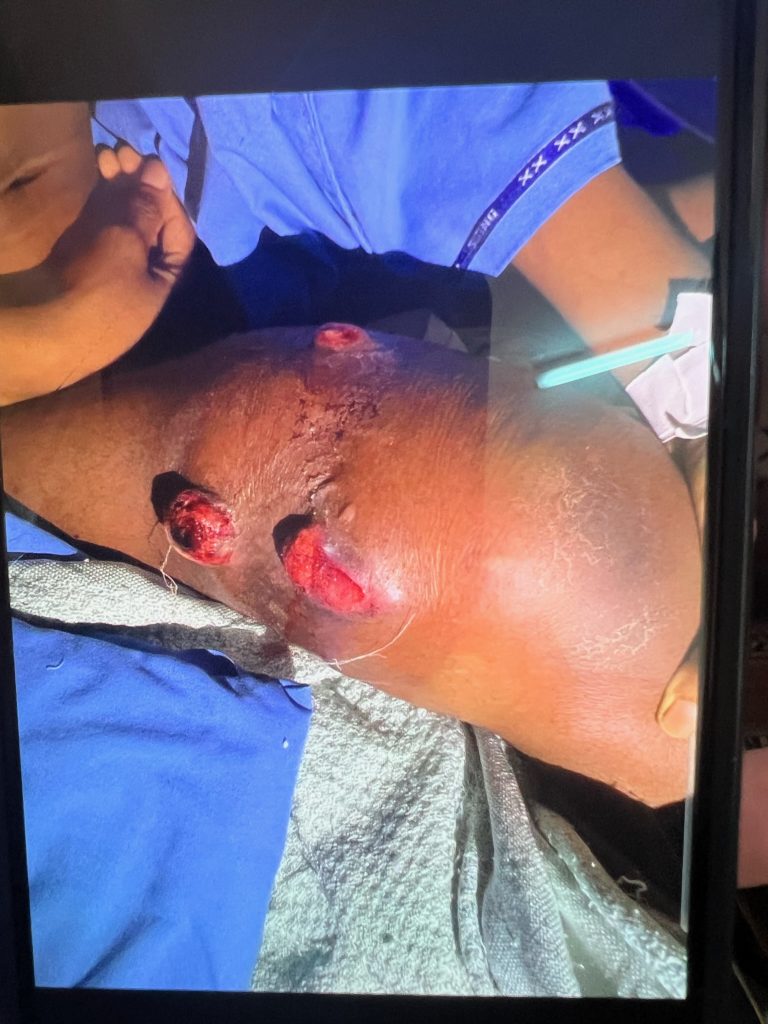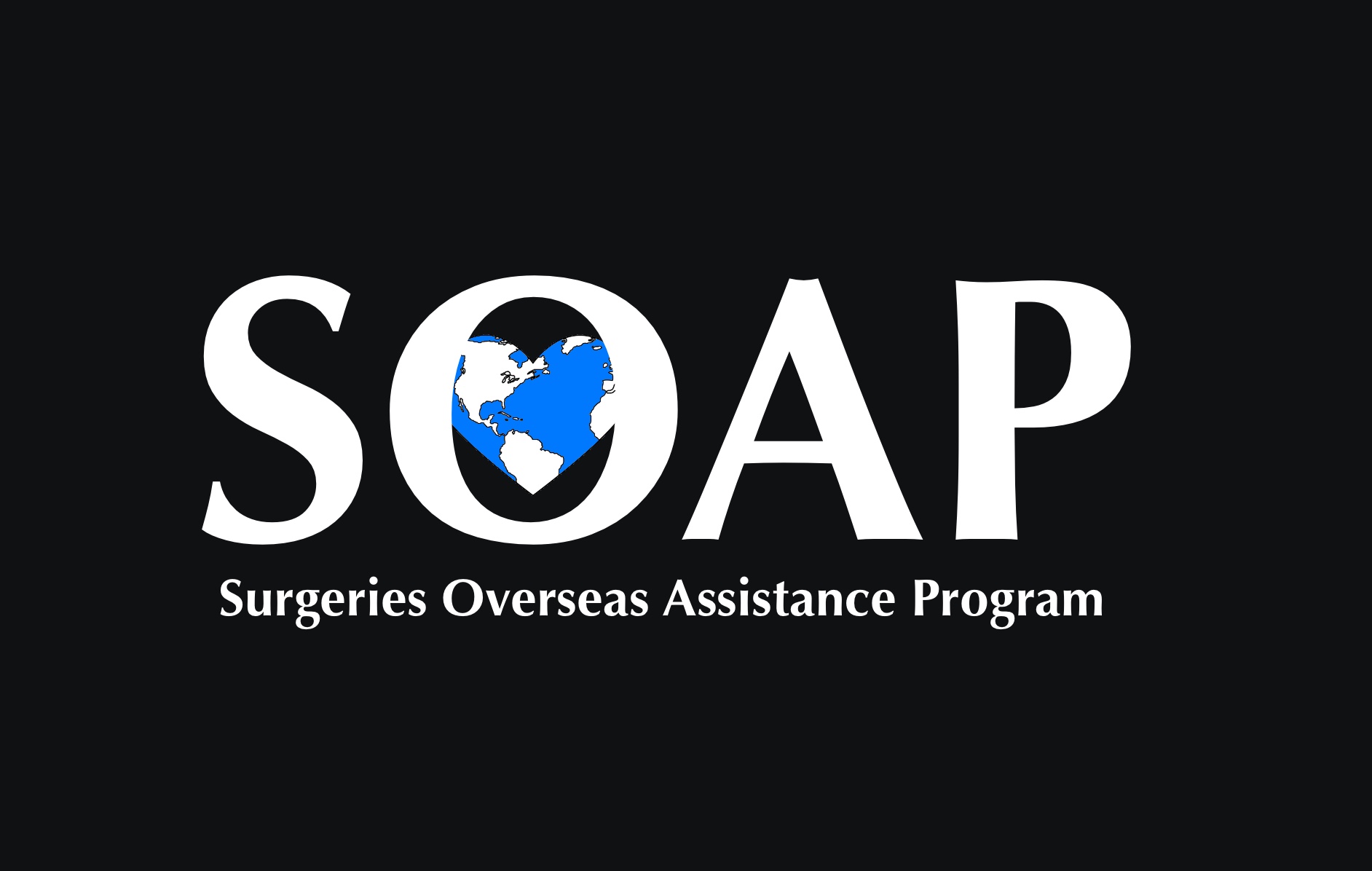I wanted to pay to tribute to a young man who inspired the creation of SOAP. His name is Dennis.
Dennis was 14 years old when we met him on the wards of KCMC in Moshi. He was skinny, sick, and in tears. His leg was swollen and had areas of uncontrolled tumor growth around his thigh. He was vomiting. He was alone.
Our whole team was struck by Dennis’ plight, but the two US chief residents on our journey were fiercely determined to get Dennis care and treatment. Unfortunately, the economic realties of the hospital and the country prevented this young man from getting into the operating room and getting initial tumor management care including diagnostic biopsy. Undeterred, the US residents worked with KCMC residents to navigate the waters of getting a waiver for emergent care. After many days, we were finally able to get Dennis to the OR.
In the operating room, Dennis’ tumor was biopsied – a necessary start to planning treatment. In addition, a group of KCMC resident were able to take part in the careful steps of appropriate biopsy technique for musculoskeletal tumors. Biopsy location, tissue planes, vascular supply, and bloodless techniques were all discussed and taught.

It was a successful first surgery. And then reality struck again, as Dennis did not have funding for the biopsy to be shipped and reviewed by bone tumor experts outside of KCMC. Another effort to navigate these processes ensued.
I do not know the end to Dennis’ story. As is sometimes the case in medicine, I fear it may not have ended well. His biopsy was sent for diagnosis, but his tumor was large and metastasis was noted on chest X-rays. His prognosis was grim.
But even in defeat, Dennis’ story gave rise to inspiration. His battle for treatment and his need for funds served as inspiration for our traveling group to discuss alternative options. SOAP was born from Dennis’ need.
SOAP’s funding will allow for future traveling educators to more efficiently provide surgical treatment for impoverished patients. This efficiency will not only provide immediate benefit to that patient, but also grow to benefit many more as the mentor surgeons have more opportunities to teach in the hands on environment in the operating room!
I think often about Dennis. I hope he is not suffering. I thank him for his inspiration.
